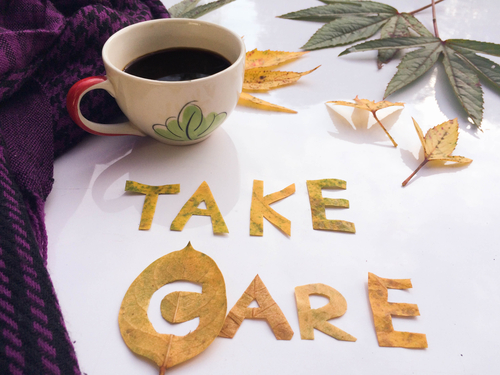Caregivers Must Also Look After Their Own Well-being
Written by |

My wife, Jill, who has Huntington’s disease, is doing remarkably well. Most people in her shoes would be falling apart, but she is levelheaded about having it, and many are amazed when I tell them that she accepts her diagnosis. Think about that for a moment: She tolerates a horrible disease that has wiped out many members of her father’s family.
Many people are comfortable sharing their feelings with her because she has a way of listening to others that makes them feel validated and open to receiving suggestions — even me, her loving husband. Her advice is honest and straightforward and is always mindful of the individual’s limitations. Jill has a way of relating to and connecting with others that often makes them feel better about themselves — especially me.
After the shock of her diagnosis wore off, we talked about my role as her caregiver. Jill said it’s vital for me to have someone to talk with, vent to, and remind me that taking care of myself is not selfish. Her line of reasoning is that when a person gets sick, their loved ones suffer, too — often in silence. Caregivers might think they are whining or being inconsiderate if they talk about how hard things are to the person to whom they are giving care.
She believes that suffering in silence doesn’t work in the long run. The caregiver’s role is physically and emotionally exhausting, and if you don’t deal with it in a healthy manner, it could ruin your relationships. When you are tired and frustrated, you tend to lash out at those around you. Jill and I also discussed that if I didn’t feel comfortable sharing my feelings with her, then attending a therapist who specializes in grief or joining a support group would be adequate alternatives.
Jill’s perspective makes sense to me as a caregiver and as a guy (because men are typically reluctant to share their feelings), which is why I’m sharing it for all the other caregivers reading this column. I’m blessed to belong to a men’s group at my church. It’s become a safe place for the guys to talk about what is going on in their lives. I have opened up about my wife’s disease with the group. They reach out to me, ask me how I’m doing, and offer prayers. Jill is glad that I don’t feel alone as her caregiver because they are there for us.
As a caregiver, when I think about the importance of self-care, I am reminded of the part in airline safety videos where passengers are advised about what to do if there’s a drop in cabin pressure. The recommendation is that you should put on your oxygen mask first before helping the person next to you. The reason is that if you pass out, you won’t be able to help your seatmate.
This example illustrates why caregivers need to be taken care of, too.
***
Note: Huntington’s Disease News is strictly a news and information website about the disease. It does not provide medical advice, diagnosis, or treatment. This content is not intended to be a substitute for professional medical advice, diagnosis, or treatment. Always seek the advice of your physician or other qualified health provider with any questions you may have regarding a medical condition. Never disregard professional medical advice or delay in seeking it because of something you have read on this website. The opinions expressed in this column are not those of Huntington’s Disease News, or its parent company, Bionews Services, and are intended to spark discussion about issues pertaining to Huntington’s disease.



Leave a comment
Fill in the required fields to post. Your email address will not be published.